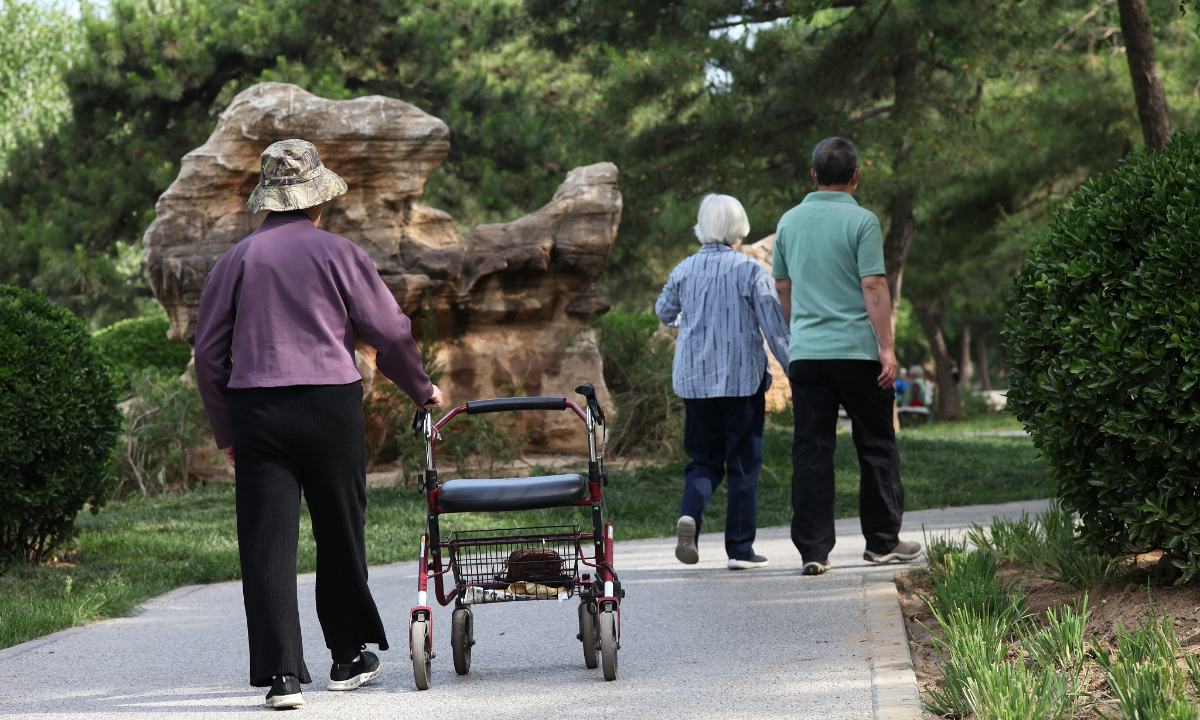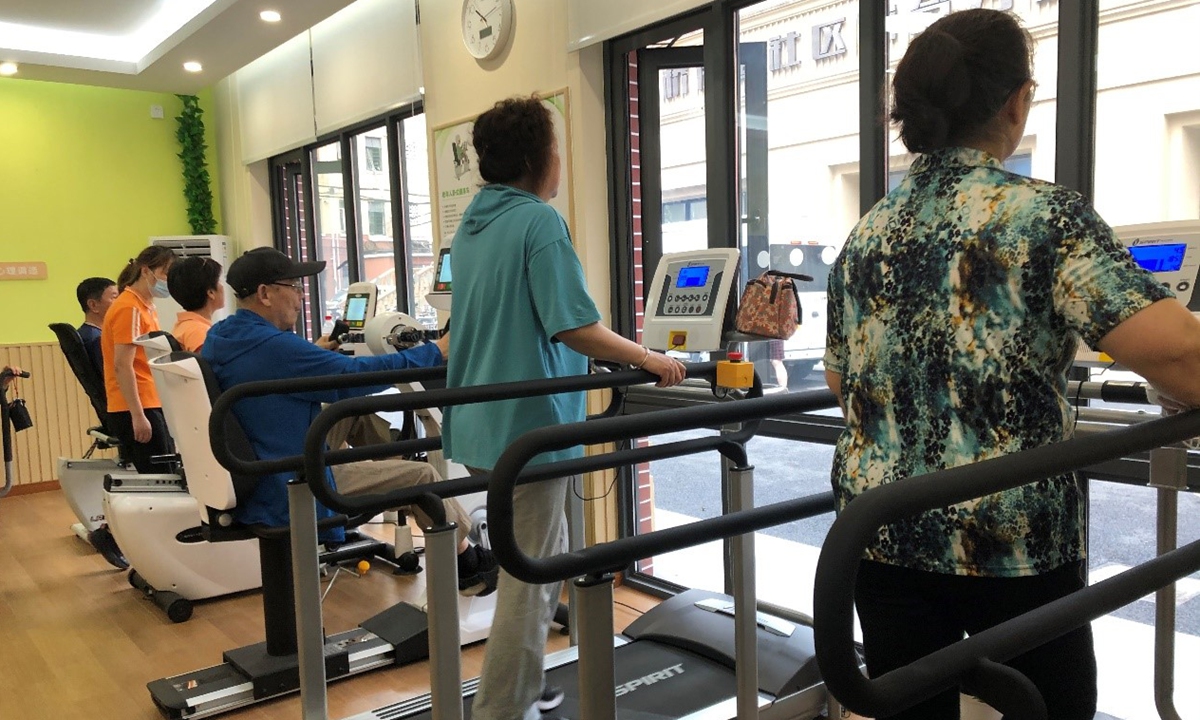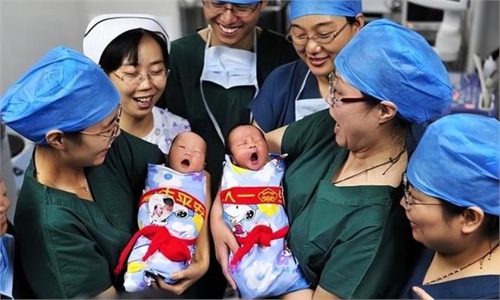
Photo:VCG
The number of people aged 60 years and above in Beijing in 2021 for the first time accounted for more than 20 percent of the city's total, indicating that the Chinese capital has become a moderately aging society, according to a government report released on Friday.
As of the end of 2021, the permanent population aged 60 and above in Beijing stood at 4.416 million, accounting for 20.18 percent of the total population, an increase of 117,000 compared with 2020. The population aged 65 and above was 3.116 million, accounting for 14.24 percent of total permanent residents, an increase of 204,000 compared with 2020, according to the report jointly released by the Beijing Municipal Working Commission on Aging and the Beijing Municipal Committee on Aging at the Smart Health and Retirement Conference held during the China International Fair for Trade in Services, the Beijing Daily reported on Friday.
The report said that 2021 witnessed the largest increase in the number of elderly people and the highest growth rate in the past five years in Beijing. According to international standards, when the proportion of people aged 60 and above accounts for 20-30 percent, or the proportion of people aged 65 and above is 14-20 percent of the total, it means that the region has become a moderately aging society.
If the registered population aged 15 to 59 is supposed to support the registered population aged 60 and above, it means that one elderly person in Beijing is supported by an average of 2.1 registered workers, according to the report.

Photo: Chen Shasha/GT
Beijing has been experiencing a deepening aging trend, with many Chinese demographers believing that the aging problem will continue to aggravate during the 14th Five-Year (2021-25) plan period.
According to the Beijing Municipal Working Commission on Aging, the number of elderly people in Beijing will reach 7 million by 2035, accounting for over 30 percent of the total population, and the number of people aged 80 and above will reach 1 million, indicating that Beijing will become a severely aging society by then.
Beijing is the latest to join the ranks of moderately aging societies. According to the seventh national population census in 2021, 12 provinces and municipalities including Northeast China's Liaoning and Heilongjiang provinces, Central China's Hubei and Hunan provinces, and the cities of Tianjin and Shanghai have become moderately aging societies.
Chinese demographers said the continued low birth rate has deepened the aging problem.
The number of newborns in the Chinese mainland dropped to 10.62 million in 2021, down from 12 million in 2020 and marking a drop for the fifth consecutive year.
Chinese demographers expect a population zero-growth period during the 14th Five-Year plan period, and due to factors including the COVID-19 pandemic, the number of newborns is likely to fluctuate in the following years, but the general trend toward zero growth will not be altered, demographers said.
Lu Jiehua, a professor of sociology at Peking University, told the Global Times on Friday that the continued low birth rate along with worsening aging problems will pose serious challenges to the balanced development of China's population.
China has issued plans to optimize the birth policy amid a declining birth rate. In August, 17 national departments jointly issued a guideline to boost population growth, which included promoting prenatal and postnatal care, further developing nursing systems, improving the mechanism for maternity leave and insurance, and offering preferential house-purchase policies to families with more than one child.
Lu said that China's service system for seniors is still imperfect, and the government should encourage and support the development of more social institutions for the elderly, and combine home care with community care for seniors.
In the latest move, 13 departments jointly issued a notice on Monday to support the development of eldercare and childcare services, saying governments should cut taxes for eligible nursing institutions and offer them rent reductions or exemptions.


